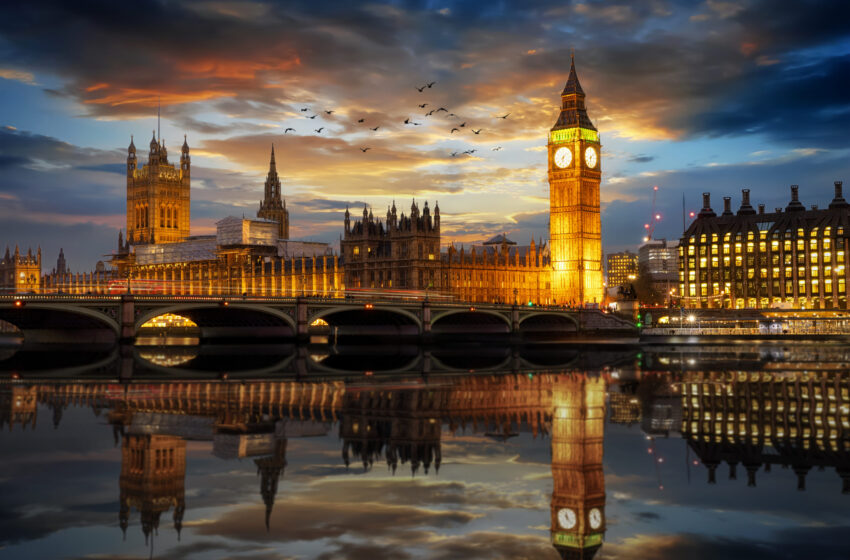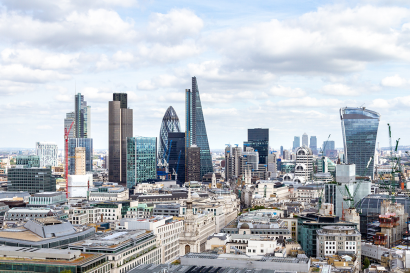PRESS RELEASES | 29/06/2023
Lack of progress towards net zero risks investment and the UK’s status as a climate leader

Today, the Aldersgate Group publishes its Net Zero Policy Tracker, an assessment of the UK Government’s progress towards delivering net zero. It finds that policy is currently not on track to reach net zero by 2050, and calls for increased policy ambition and a rapid acceleration of implementation measures to respond to growing international competition from the USA and the EU. This will be vital if the UK is to remain an attractive place to invest in the technologies and skills required for the transition to net zero.
The new report, developed following engagement with major UK businesses, finds that significant progress must be made in key sectors such as industry, power, transport and the built environment to get back on track. It outlines the rapid action required to reach the UK’s legally mandated net zero target and respond to international competition in low-carbon industries.
Since the publication of the Net Zero Strategy in 2021, the UK Government has faced a number of significant challenges, from the war in Ukraine and subsequent energy crisis, to rising inflation. These issues have played a major role in a challenging period for the economy that has slowed progress towards net zero. However, as outlined by former Energy Minister Rt Hon Chris Skidmore MP in his recent review of net zero, the most effective way to navigate these challenges is by boosting job creation and energy security through the creation of a thriving low-carbon economy.
Delivering this at pace has become even more urgent with the introduction of the Inflation Reduction Act in the USA and the EU’s Green Deal Industrial Plan. Without a clear response that provides businesses and investors with confidence, the UK risks its status as an international leader on climate at a time when inward investment is vital to drive economic growth across the country and create the low-carbon industries of the future.
In a new section of the Aldersgate Group website, the Net Zero Policy Tracker assigns key sectors of the UK economy with a colour coded progress assessment. Industry, heat and buildings and skills are marked as red, indicating a need for urgent action to get back on track. Power, transport, finance, and nature receive a yellow rating, with these sectors showing some progress but more ambitious policies required. No major sector of the UK economy is awarded a green rating indicating it is on track towards the legally mandated net zero target set in 2019.
Rt Hon Theresa May MP, former Prime Minister and Chair of the Aldersgate Group said: “As Prime Minister, I was proud to lead the UK to become the first major economy to enshrine a net zero target into law. Four years on, in the face of international competition and geopolitical instability, the UK must lead by example again by rapidly accelerating delivery towards our climate target. The net zero transition represents the greatest economic opportunity of the century and can address many of the challenges we face. By building on our leadership in low carbon technologies and services and delivering emissions reductions at pace, we can drive growth, create jobs across the country, ensure energy security and alleviate the cost of living crisis.”
Ben Westerman, Interim Executive Director, Aldersgate Group said: “We have reached a crucial moment in the UK’s net zero transition as climate impacts worsen and international competition for investment continues to grow. The decisions made in the coming years will be the difference between meeting our climate goals and securing the economic benefits offered by a thriving low-carbon economy, and losing out to the ambitious plans set out by the USA and the EU. It is crucial that the UK Government rapidly accelerates the delivery of net zero across every sector of the economy, supporting the transition with clear policy signals and financial support to crowd in private sector investment.
Businesses recognise the immense economic opportunity that decarbonisation presents and are ready to lead the way, but supportive and stable policy measures are vital to give them the confidence they need to invest in supply chains, skills, and technologies. By acting quickly and creating the conditions for a thriving low-carbon economy, the UK has an opportunity to boost energy security, drive economic growth and job creation, and revitalise its industrial sectors. Failure to do so will see the UK miss out on major investment and opportunities to increase prosperity across the country, so it is imperative that the UK acts to retain its place as a global leader in the race to battle climate change.”


